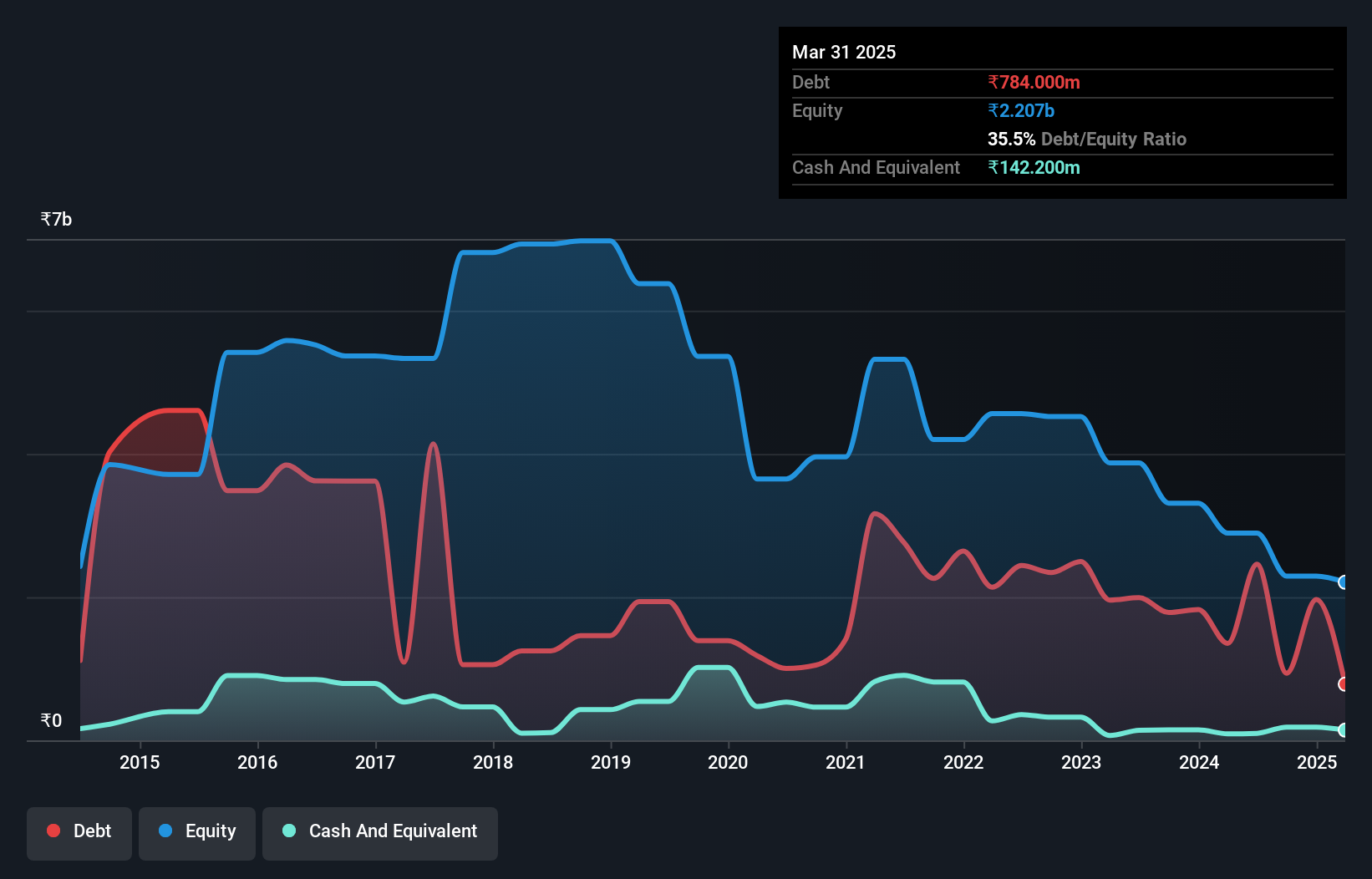
The external fund manager backed by Berkshire Hathaway's Charlie Munger, Li Lu, makes no bones about it when he says 'The biggest investment risk is not the volatility of prices, but whether you will suffer a permanent loss of capital.' So it seems the smart money knows that debt - which is usually involved in bankruptcies - is a very important factor, when you assess how risky a company is. We note that Zee Media Corporation Limited (NSE:ZEEMEDIA) does have debt on its balance sheet. But the real question is whether this debt is making the company risky.
When Is Debt A Problem?
Generally speaking, debt only becomes a real problem when a company can't easily pay it off, either by raising capital or with its own cash flow. If things get really bad, the lenders can take control of the business. However, a more common (but still painful) scenario is that it has to raise new equity capital at a low price, thus permanently diluting shareholders. Of course, the upside of debt is that it often represents cheap capital, especially when it replaces dilution in a company with the ability to reinvest at high rates of return. When we examine debt levels, we first consider both cash and debt levels, together.
What Is Zee Media's Net Debt?
The image below, which you can click on for greater detail, shows that Zee Media had debt of ₹784.0m at the end of March 2025, a reduction from ₹1.35b over a year. On the flip side, it has ₹142.2m in cash leading to net debt of about ₹641.8m.

How Strong Is Zee Media's Balance Sheet?
According to the last reported balance sheet, Zee Media had liabilities of ₹5.02b due within 12 months, and liabilities of ₹1.58b due beyond 12 months. Offsetting these obligations, it had cash of ₹142.2m as well as receivables valued at ₹1.99b due within 12 months. So its liabilities outweigh the sum of its cash and (near-term) receivables by ₹4.46b.
While this might seem like a lot, it is not so bad since Zee Media has a market capitalization of ₹9.89b, and so it could probably strengthen its balance sheet by raising capital if it needed to. However, it is still worthwhile taking a close look at its ability to pay off debt. There's no doubt that we learn most about debt from the balance sheet. But you can't view debt in total isolation; since Zee Media will need earnings to service that debt. So when considering debt, it's definitely worth looking at the earnings trend. Click here for an interactive snapshot.
See our latest analysis for Zee Media
In the last year Zee Media had a loss before interest and tax, and actually shrunk its revenue by 2.6%, to ₹6.2b. We would much prefer see growth.
Caveat Emptor
Importantly, Zee Media had an earnings before interest and tax (EBIT) loss over the last year. Indeed, it lost a very considerable ₹1.4b at the EBIT level. Considering that alongside the liabilities mentioned above does not give us much confidence that company should be using so much debt. Quite frankly we think the balance sheet is far from match-fit, although it could be improved with time. For example, we would not want to see a repeat of last year's loss of ₹1.2b. So in short it's a really risky stock. There's no doubt that we learn most about debt from the balance sheet. However, not all investment risk resides within the balance sheet - far from it. For instance, we've identified 1 warning sign for Zee Media that you should be aware of.
If, after all that, you're more interested in a fast growing company with a rock-solid balance sheet, then check out our list of net cash growth stocks without delay.
Valuation is complex, but we're here to simplify it.
Discover if Zee Media might be undervalued or overvalued with our detailed analysis, featuring fair value estimates, potential risks, dividends, insider trades, and its financial condition.
Access Free AnalysisHave feedback on this article? Concerned about the content? Get in touch with us directly. Alternatively, email editorial-team (at) simplywallst.com.
This article by Simply Wall St is general in nature. We provide commentary based on historical data and analyst forecasts only using an unbiased methodology and our articles are not intended to be financial advice. It does not constitute a recommendation to buy or sell any stock, and does not take account of your objectives, or your financial situation. We aim to bring you long-term focused analysis driven by fundamental data. Note that our analysis may not factor in the latest price-sensitive company announcements or qualitative material. Simply Wall St has no position in any stocks mentioned.
About NSEI:ZEEMEDIA
Zee Media
Engages in the publishing and broadcasting of satellite television channels in India and internationally.
Adequate balance sheet and slightly overvalued.
Market Insights
Community Narratives





